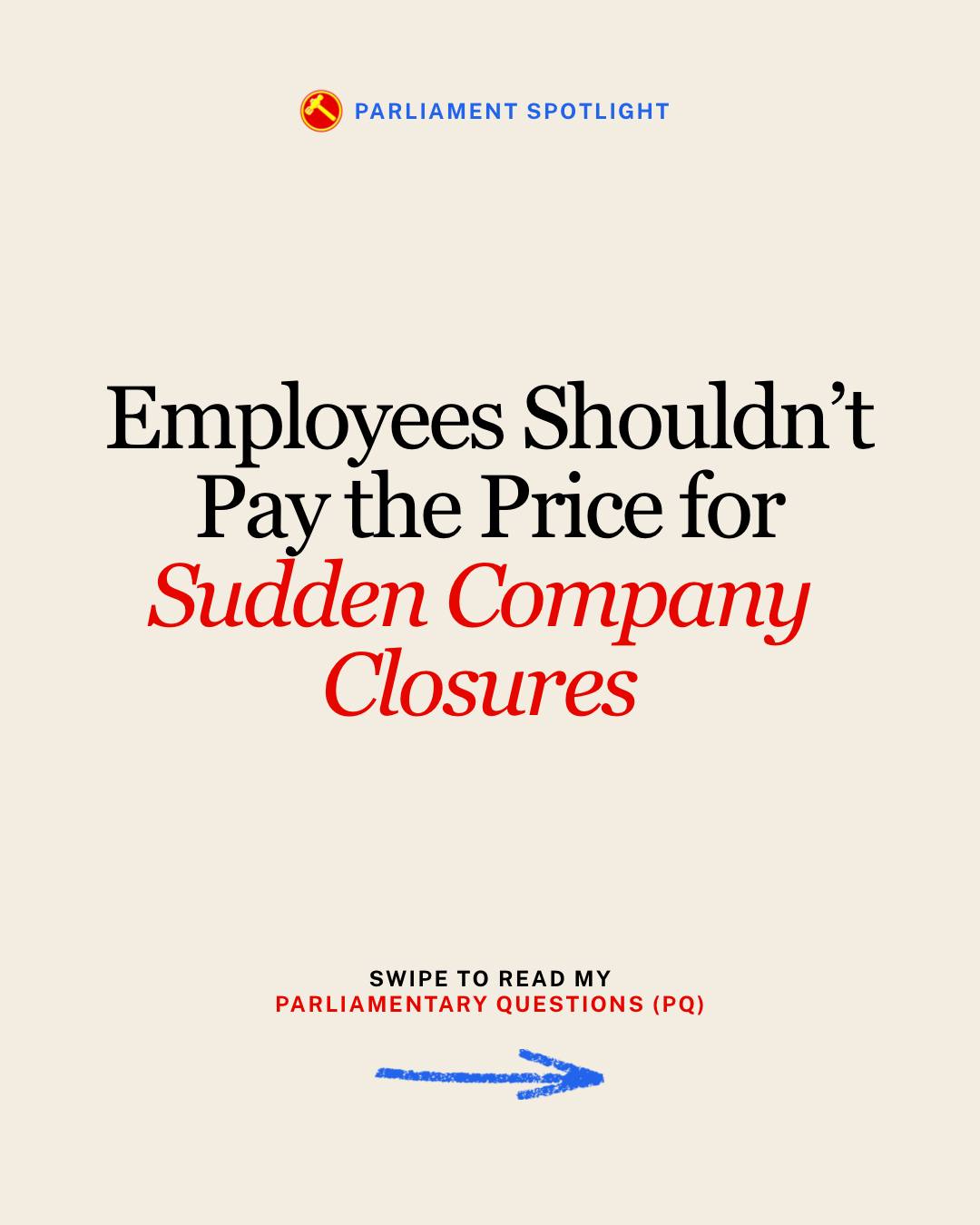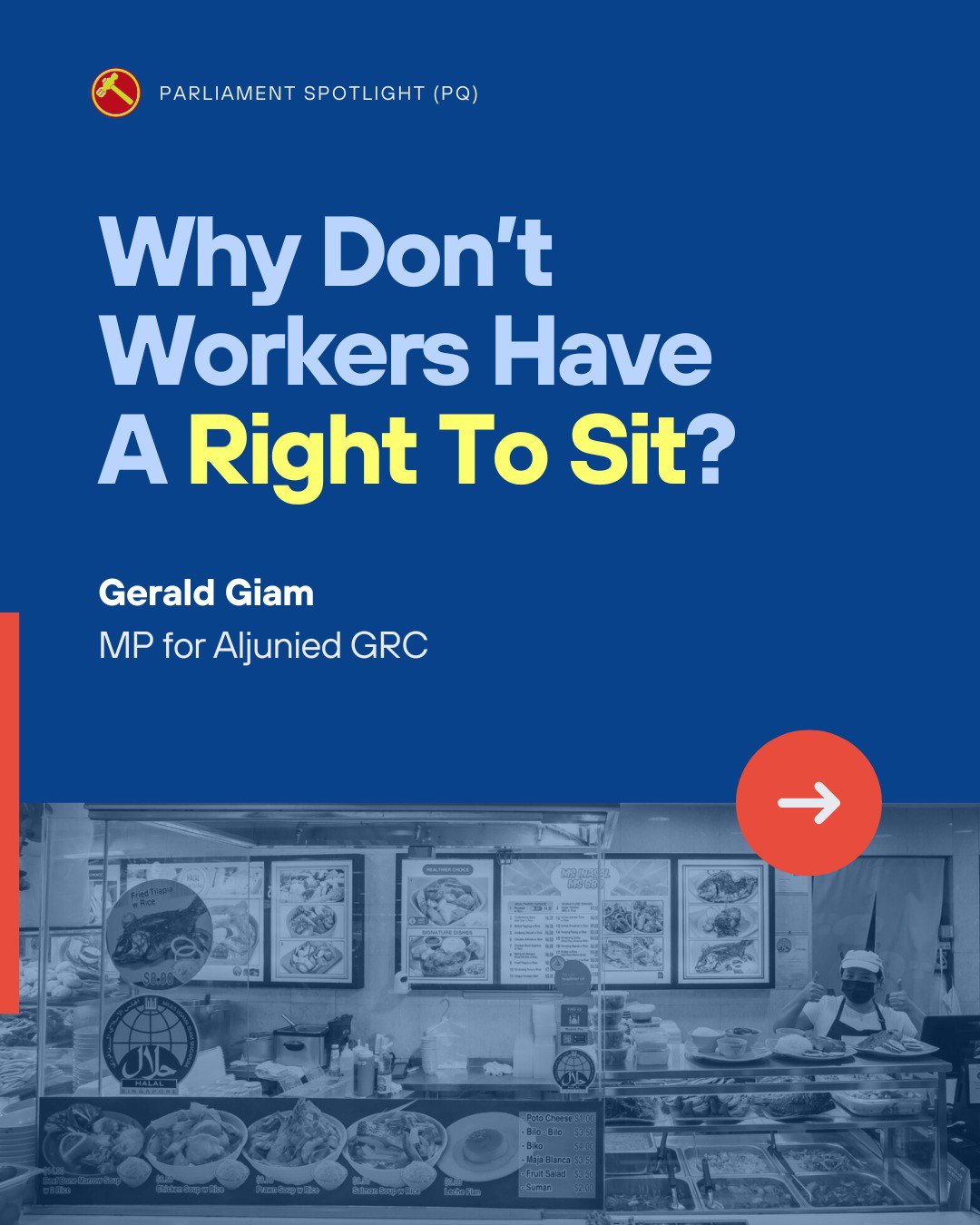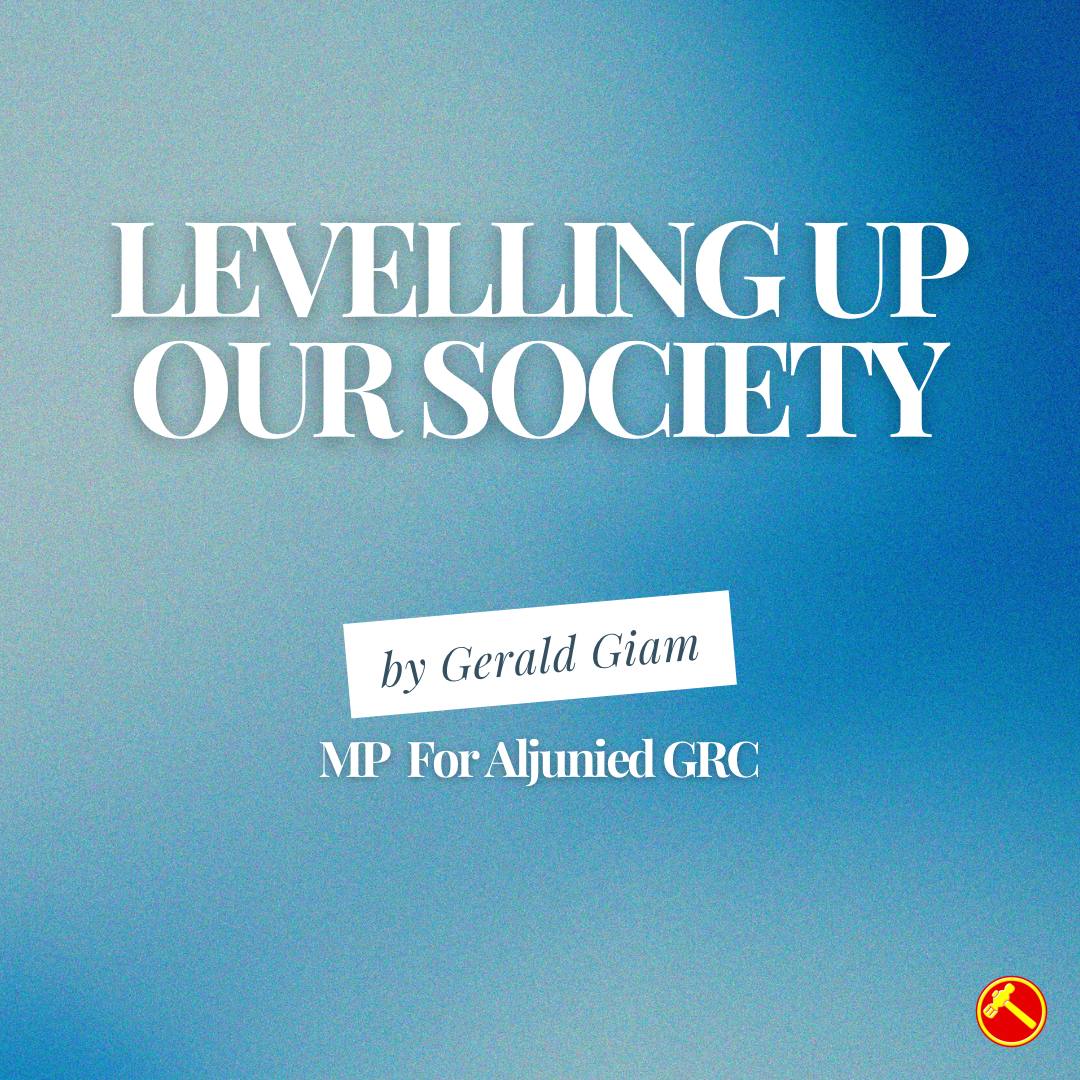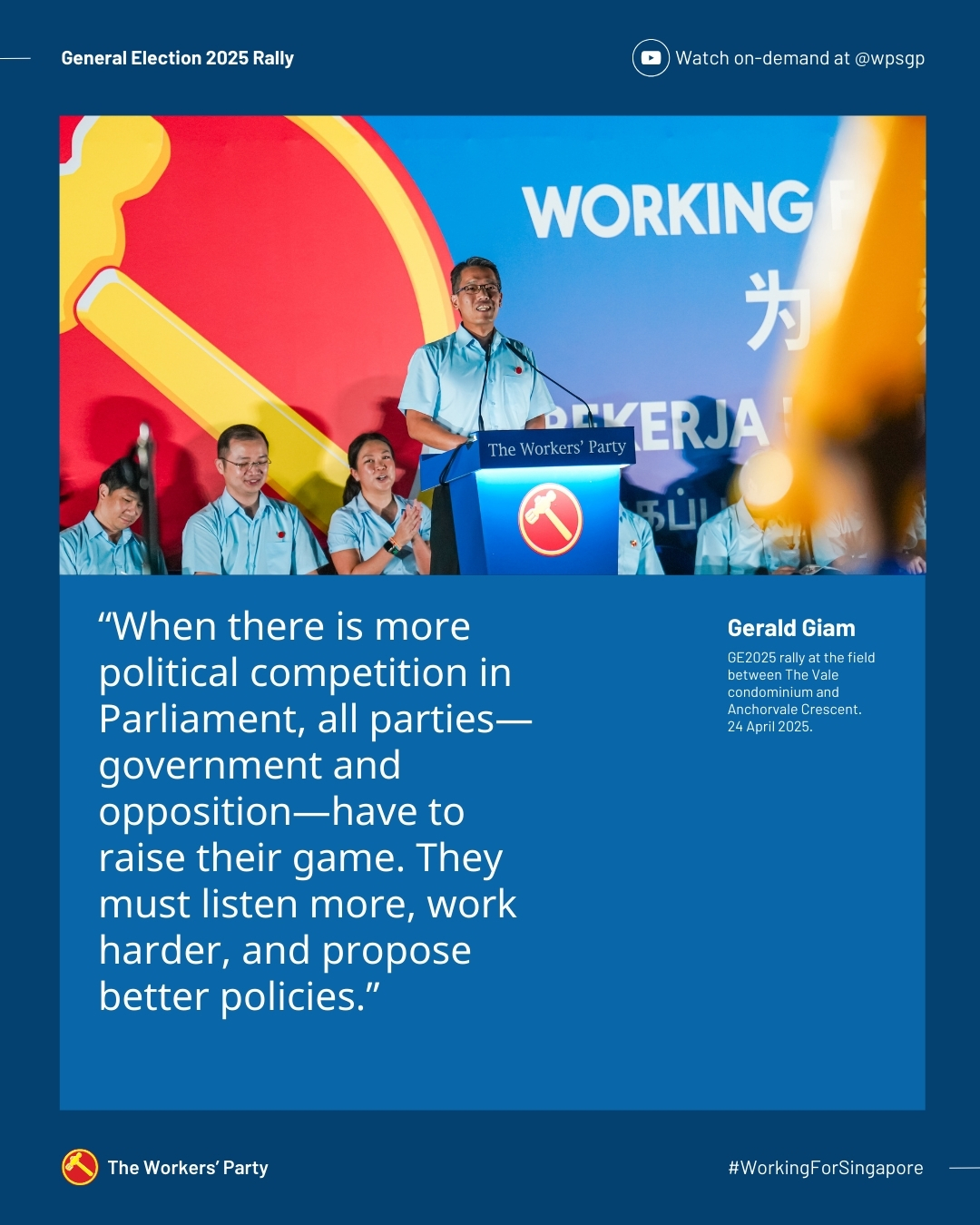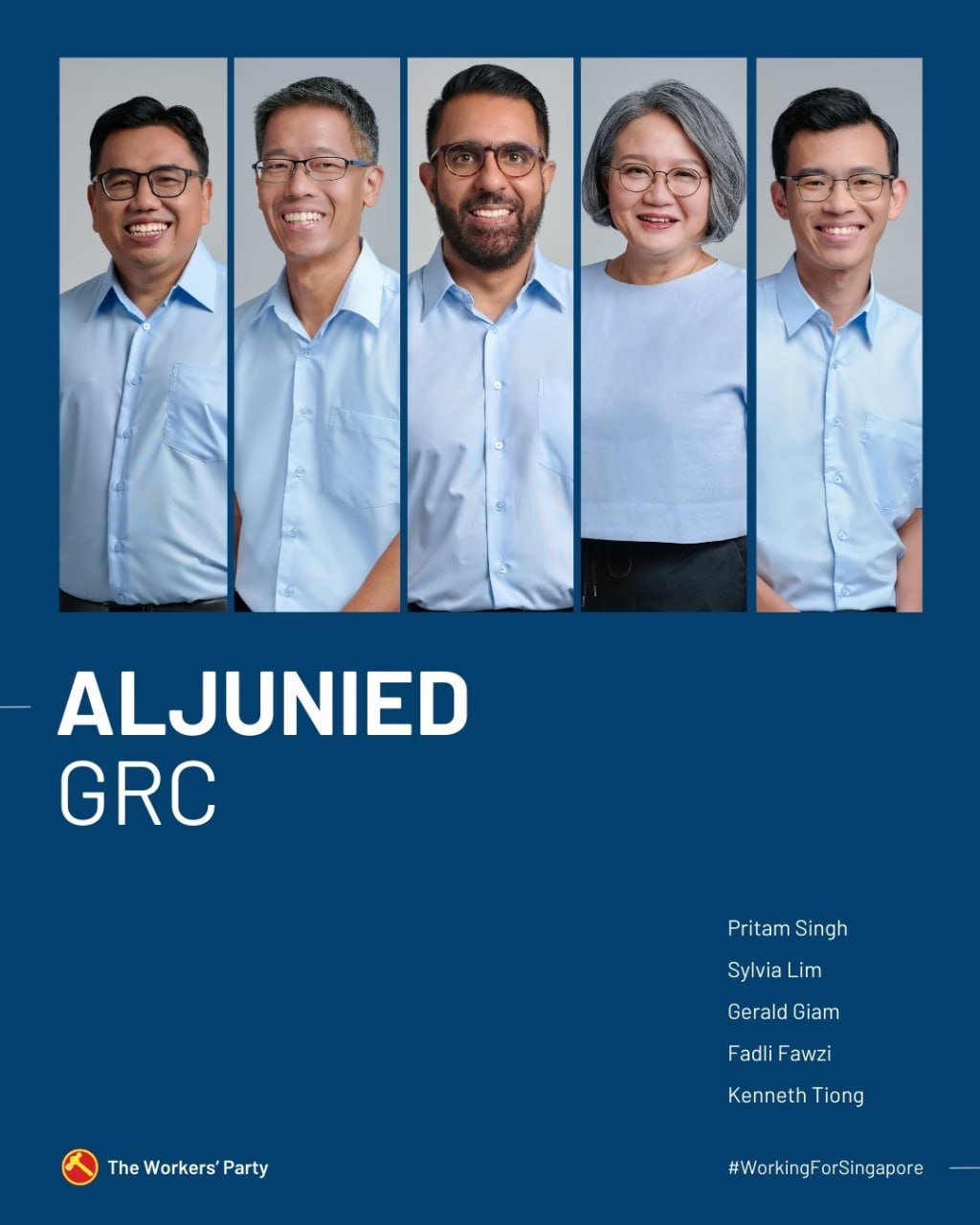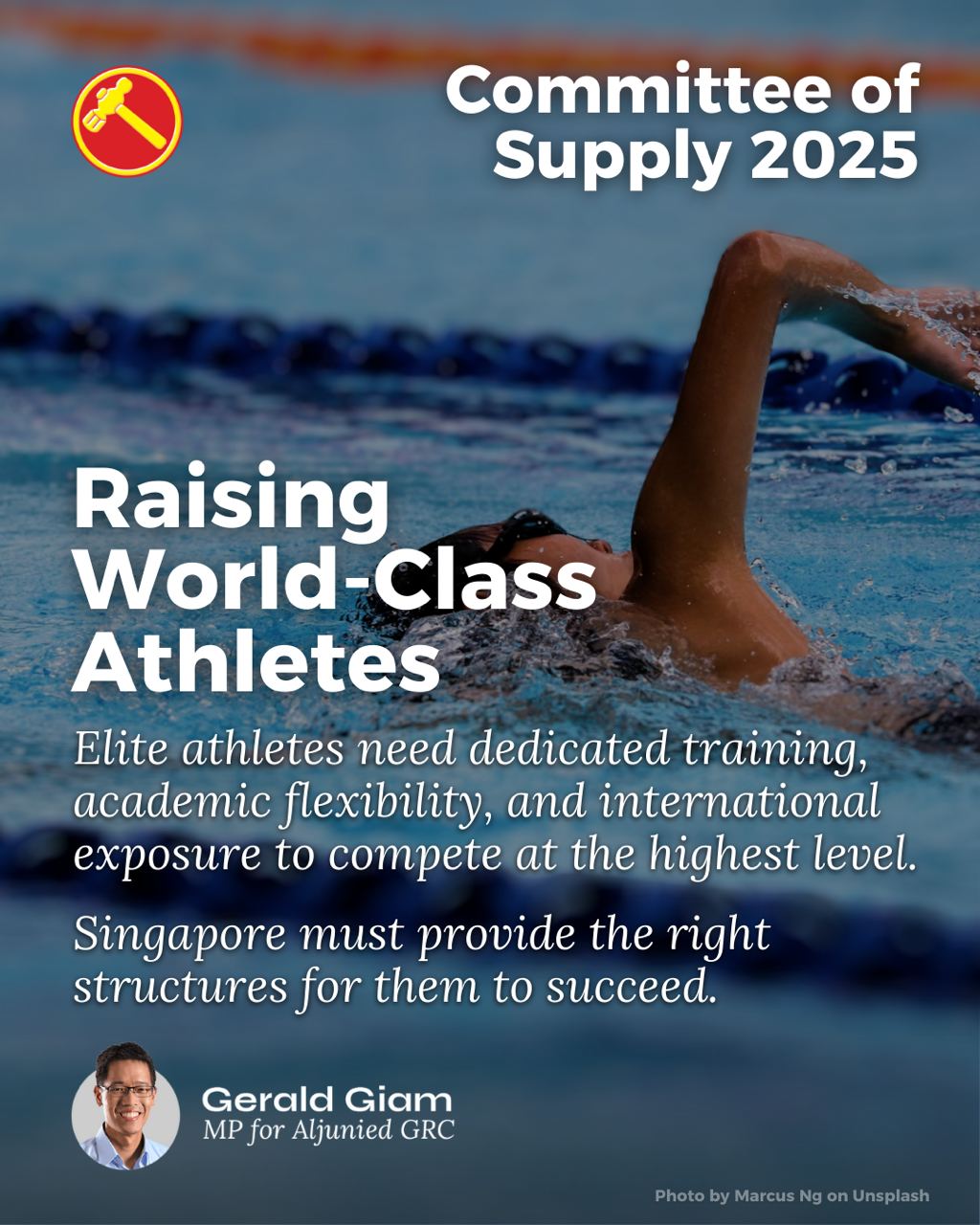Regulation of Imports and Exports (Amendment) Bill
Gerald Giam (Aljunied GRC)
Parliament, 6 Nov 2025
Mr Deputy Speaker,
The Regulation of Imports and Exports (Amendment) Bill is a necessary legislative measure to safeguard the integrity and reputation of Singapore’s trade ecosystem.
The Bill primarily seeks to prevent the fraudulent issuance and misuse of Trade Information Certificates (TICs), which are official documents that are like a passport for goods. The fraudulent misuse of TICs ultimately damages our nation’s status as a trusted global trading hub.
False Certificates of Origin (CoO) and other TICs undermine the integrity of global trade data, facilitate customs duties evasion, and allow unsafe or substandard goods to enter markets under false pretences. This abuse, whether involving exports to foreign markets or goods transiting through Singapore, is a clear threat to our national trade integrity and reputation.
The amendments also rectify operational gaps by explicitly expanding the scope for search warrants to include documents and records, recognising that the critical evidence in fraud cases is often digital or paper, rather than physical goods.
These are important steps, but their implementation requires careful scrutiny.
The Bill appears to be a response to the problem of trade circumvention—sometimes pejoratively referred to as “Southeast Asia washing”—where traders exploit major global trading hubs, like Singapore, to circumvent foreign trade restrictions and tariffs. It tackles this by directly regulating Origin and Non-Manipulation Certificates, introducing a new offence for knowingly issuing false TICs, and mandating strict record-keeping for preferential CoOs.
Complex, high-volume trade circumvention schemes are almost certainly orchestrated by sophisticated actors who command the necessary supply chains. If the Bill’s primary purpose is to stop this high-level fraud, we must ensure the severe compliance burden does not fall disproportionately on our SME traders.
Could I ask the Minister of State: Of all the instances where Singapore Customs has detected trade circumvention via fraudulent TICs, what percentage of these cases involved small local traders versus large MNCs or their subsidiaries?
How will the Ministry ensure that the compliance burden under this Bill does not become an unintended barrier to trade for the low-risk majority?
The New Compliance Cliff Edge
This Bill is no simple administrative update; it is a significant shift in regulatory liability that demands substantial internal investment from every trader.
While I support the Bill’s intent, I wish to focus on the significant statutory compliance burden this Bill introduces, particularly for our SMEs.
The introduction of an entirely new statutory framework for TICs converts what was often an administrative arrangement into a formal, highly regulated process with severe penalties for non-compliance. More acutely, the new record-keeping offence for manufacturers and exporters who issue preferential Certificates of Origin is a substantial shift. This provision formalises a duty with clear legal consequences, compelling traders to guarantee the proactive quality and accuracy of their records to substantiate the certificate claim, moving well beyond the simpler duty of document retention.
Furthermore, the Bill expands Singapore Customs’ enforcement powers, directly linking the integrity of the TIC to the potential seizure of physical goods. This means the quality of a single document can now stall an entire shipment, placing immense and immediate operational risk on every trading firm.
The severe penalties, reaching up to $100,000 for a first offence, risk deterring smaller firms from participating in complex preferential trade, which requires them to issue or obtain these high-liability certificates.
Inadequacy of Traders’ Systems and Expertise
The Bill could expose the inadequacy of many traders’ existing internal information systems, expertise and organisational control.
The Networked Trade Platform (NTP), the national digital business-to-government platform for regulatory compliance, and the Singapore Trade Data Exchange (SGTraDex), a business-to-business platform for operational data exchange, both allow traders to digitally transact with our trade ecosystem.
While these platforms are excellent for data exchange, they cannot automate the internal corporate hygiene now mandated by law. The expanded government powers under this Bill, which include searching for books, documents and records, necessitate significant investment in internal corporate governance.
SMEs face a significant administrative cost of interpretation. These include hiring consultants or dedicating management time to fully understand the legal nuances of the new offences and record-keeping obligations. This requires a mandatory upgrade to auditable Document Retention Mechanisms to secure, systematically organise and retrieve records for five years or more. The documentation complexity is far beyond the existing trade permit submissions.
Therefore, the true compliance costs are not in the permit fees, but in the internal process control required to prevent an honest mistake from becoming a high-penalty offence.
Furthermore, the severity of the new penalty regime necessitates substantial human capital investment and training.
Proposal: Empowering Traders Through Targeted Assistance
To mitigate these foreseen problems and ensure the Bill does not become an unintended barrier to trade, I urge the government to provide robust, targeted assistance to traders to help them comply with the Bill’s obligations.
First, Enterprise Singapore should create a Trade Compliance Technology Grant. It could expand on the existing Enterprise Development Grant (EDG), specifically for technology adoption by SMEs related to this Bill’s requirements. This funding could cover up to 80% of the cost of the adoption or upgrade of traders’ Enterprise Resource Planning (ERP) systems and specialised Document Management Systems (DMS) to meet the new requirements under this Bill.
This grant should also extend financial support to a trader’s internal IT department, should they wish to implement the enhancements themselves without engaging third-party vendors.
Second, technical support to traders must be bolstered. Singapore Customs and the IMDA (Infocomm and Media Development Authority) must ensure all the necessary APIs (Application Programming Interfaces) are made available for traders to interface between their ERP systems and both the NTP and SGTraDex. These APIs must be accurately and comprehensively documented, and supported by a responsive and competent technical and functional help desk service.
Third, we need to provide specialist advisory support needed to help local traders bridge the compliance knowledge gap. I propose a Trade Compliance Advisory Grant that SMEs can tap on to subsidise the cost of engaging trade lawyers or consultants. These experts can help draft the necessary internal Standard Operating Procedures (SOPs) and establish the robust corporate governance framework demanded by the Bill.
Fourth, Customs could also partner with trade associations to offer heavily subsidised specialised training subsidies for SME traders, with a curriculum focused on managing internal compliance systems, enhanced record-keeping obligations, and risk management related to this Bill.
This Bill could also open up career opportunities for Singaporeans wishing to specialise in trade compliance or pivot from another industry. SkillsFuture Credit and other training grants must be made available to individuals wishing to upskill themselves in this area.
If Singapore is to champion Asean digitalisation and lead in digital trade infrastructure, we must first ensure our local traders have the necessary resources, systems and trained personnel to meet the highest standards of trade data integrity.
Proposal: A Fix, Don’t Fine Enforcement Regime
Finally, the Ministry should adopt a “fix, don’t fine” approach for initial or inadvertent breaches. It should be formalised as a clear, tiered enforcement framework designed to differentiate between genuine error and deliberate fraud.
Tier 1 should cover honest mistakes by first-time offenders and minor breaches. Singapore Customs should issue only a Notice of Advisory and impose a Mandatory Remediation Period. The trader must submit a corrective action plan and leverage the proposed grants to implement a system upgrade, with no financial penalty at this stage. This encourages self-correction and transparency.
Tier 2 would cover negligence, repeated minor breaches or first-time significant breaches. A composition sum and mandatory training would be a more proportionate and effective response.
The full penalty regime, including the severe statutory fines, must be reserved strictly for Tier 3, which covers fraud or gross negligence, where the breach involves knowing falsehoods, deliberate tampering or clear intent to evade duties.
Mr Deputy Speaker, this Bill’s success hinges on how well traders comply with its requirements. We must ensure that deterrence is targeted at the fraudulent few, while genuine traders are supported with the tools and clarity necessary to meet these new, stringent requirements.
Summary
In summary, the Bill addresses serious harm to our trade integrity but risks imposing disproportionate burdens on SMEs. To mitigate these burdens, I have proposed government support through targeted grants for enhancements to internal systems, consultancy services and a commitment to a tiered, “fix, don’t fine” enforcement framework to guide honest traders into compliance.
Mr Deputy Speaker, I support the Bill.
